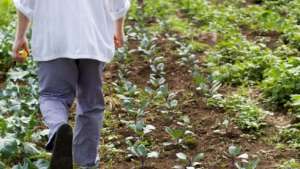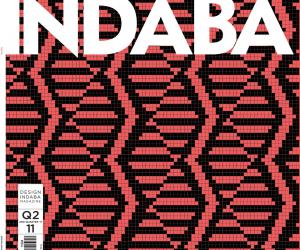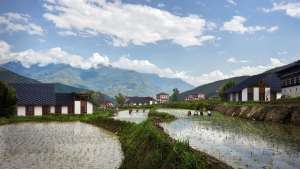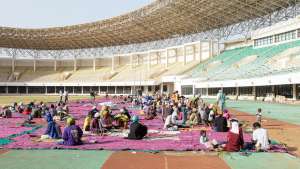From the Series
First Published in
In the sleepy West Coast town of Paternoster there’s a little tea garden with the very inviting name of “Oep ve Koep” (open for shopping). From the outside the place has a typical “padstal” (farm stall) look-and-feel to it, complete with Coca-Cola signage and an old bicycle with a basket.
It’s only once you’re seated around one of the six tables with their chequered table cloths that you notice, first the old fishing boats that have been turned into mini herb gardens and, secondly, the blackboard with the day’s menu written in chalk. In between the sosaties and bobotie (what the chef in question calls “heritage food”) you can also expect to see “Bokkoms on toast”, “Dune spinach pasta” and “Rooibos ice-cream”.
And in the tiny kitchen adjacent to the tea garden, you’ll find Kobus van der Merwe, a 30-year-old Institute of Culinary Art graduate who always knew that he didn’t want to work in an industrial kitchen. Instead, his kitchen, with just enough space for one, gives him the freedom to play around and experiment with local ingredients as he wishes.
In this kitchen each experiment starts with an exploration. Van der Merwe is passionate, more than that, ecstatic, about using local, seasonal produce and thus foraging for much of his own ingredients. By reading about, journeying on foot and talking to the locals he has made some insightful discoveries about the lesser-known foods that grow in the West Coast area.
Most famously Van der Merwe uses “bokkoms”, a salty fish biltong originating on the West Coast, in a variety of innovative ways, from salads to pastas. He has also reinvented the old favourite of sardines on toast with his unique “Bokkoms on toast”. There are also dishes that incorporate “strandsalie” (an indigenous sage used to infuse flavour when smoking food), “soutslaai” (succulent plant, the young leaves of which are used in salads) and “sea lettuce” (luminous green seaweed used raw in salads), making “local” the key theme in each of his gastronomic creations.
Using local, West Coast ingredients, Van der Merwe wants to present his guests with a meal that they can’t have anywhere else, and especially not the usual fish’n’chips one can have at almost any other eatery in Paternoster. While the restaurant’s atmosphere is informal and low-key, Van der Merwe has a unique style when it comes to the presentation of his food: “I like combining flavours and playing with texture and colour, so that the visual presentation of the food will spark people’s curiosity about the food.”
Inspiration, for Van der Merwe, is found is his natural surroundings. “I sometimes like to replicate the West Coast landscape on the plate, with food made from ingredients found in the area,” he explains. He cites the renowned Afrikaans poet C Louis Leipoldt as another one of his influences. Leipoldt, who lived in the early part of the 20th century, became known for his “veldkos” (literally, field food). Reading Leipoldt got Van der Merwe more interested in what grows in the area, encouraging him to explore the landscape, researching and learning as he goes along.
Dune spinach (or Tetragonia Decumbens – Van der Merwe knows all the Latin names) has become Van der Merwe’s favourite, staple ingredient as one is able to forage for it all year round. It has a succulent leaf that makes it ideal for salads and pasta.
Though he prefers to be non-prescriptive about what people should be getting out of this food experience, Van der Merwe admits that it’s taken Oep ve Koep a while, though its only been open for some 17 months, to attract the “right crowd”, those willing to experiment. But he also believes that, with the concept of “local food” becoming increasingly popular and important, people interested in local food will find the place. Oep ve Koep’s menu changes every day and also “migrates with the seasons”, Van der Merwe says. Going into the winter he’s creating more hot starters, for example. While Van der Merwe is more than willing to share his ideas and recipes, as he does on his Sardines on Toast blog, he says that he is sometimes reluctant to share some of his finds. “There’s always the risk that others will come and abuse the source, or not consider the ecological sensitivity of a given habitat. When foraging for food you also have a responsibility towards the environment, something I feel very strongly about,” he asserts.
Looking to the future, Van der Merwe has a new chapter in mind, what he likes to call a “new vegetarianism”. While he is still uncertain of what exactly this project will entail, he is keen to popularise vegetables and raw foods as the main component in meals. This, he reckons, will have to start by changing the stereotypes that exist around vegetarianism. “Plus I like the challenge of coming up with interesting new food creations,” he laughs.












